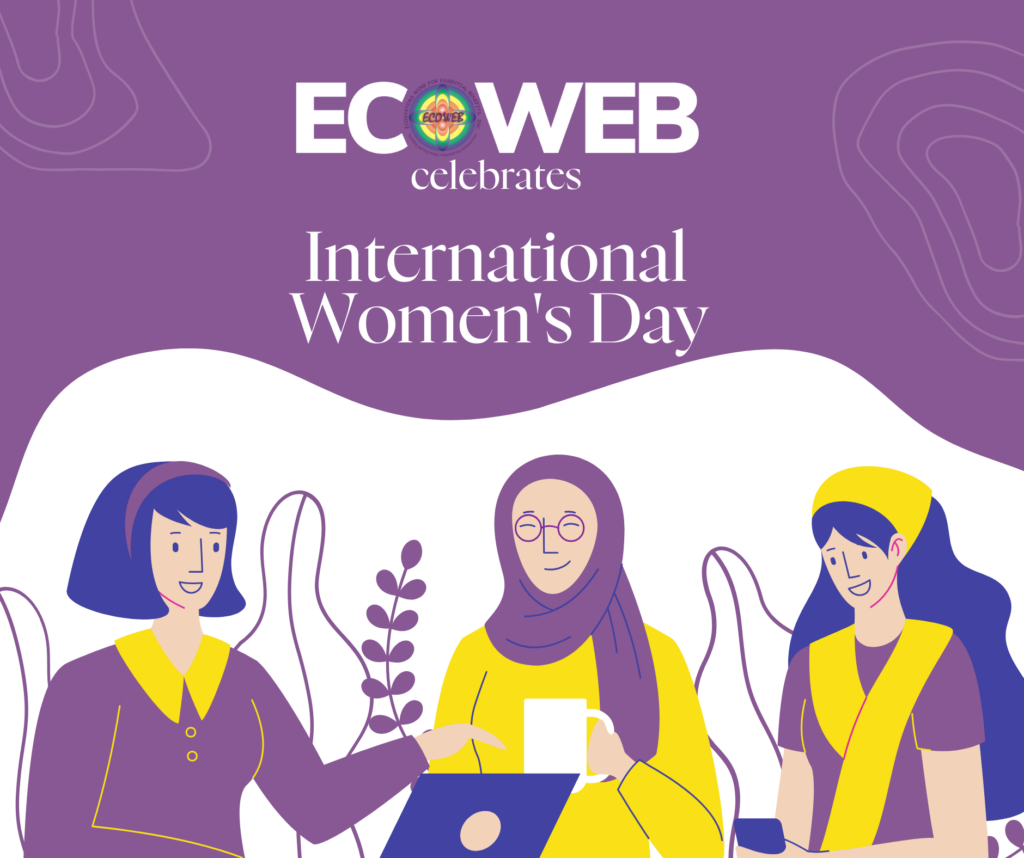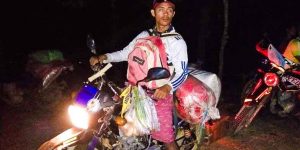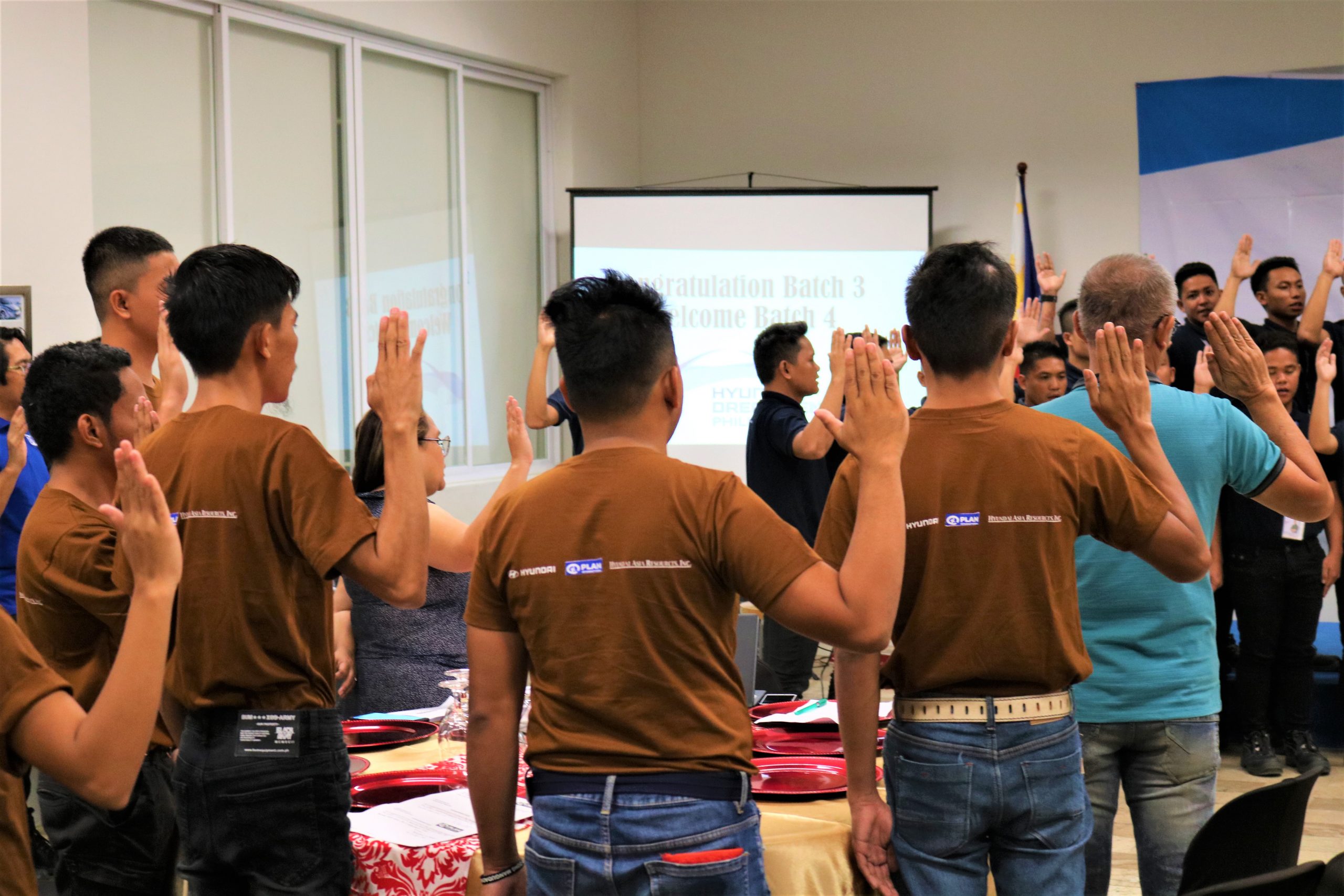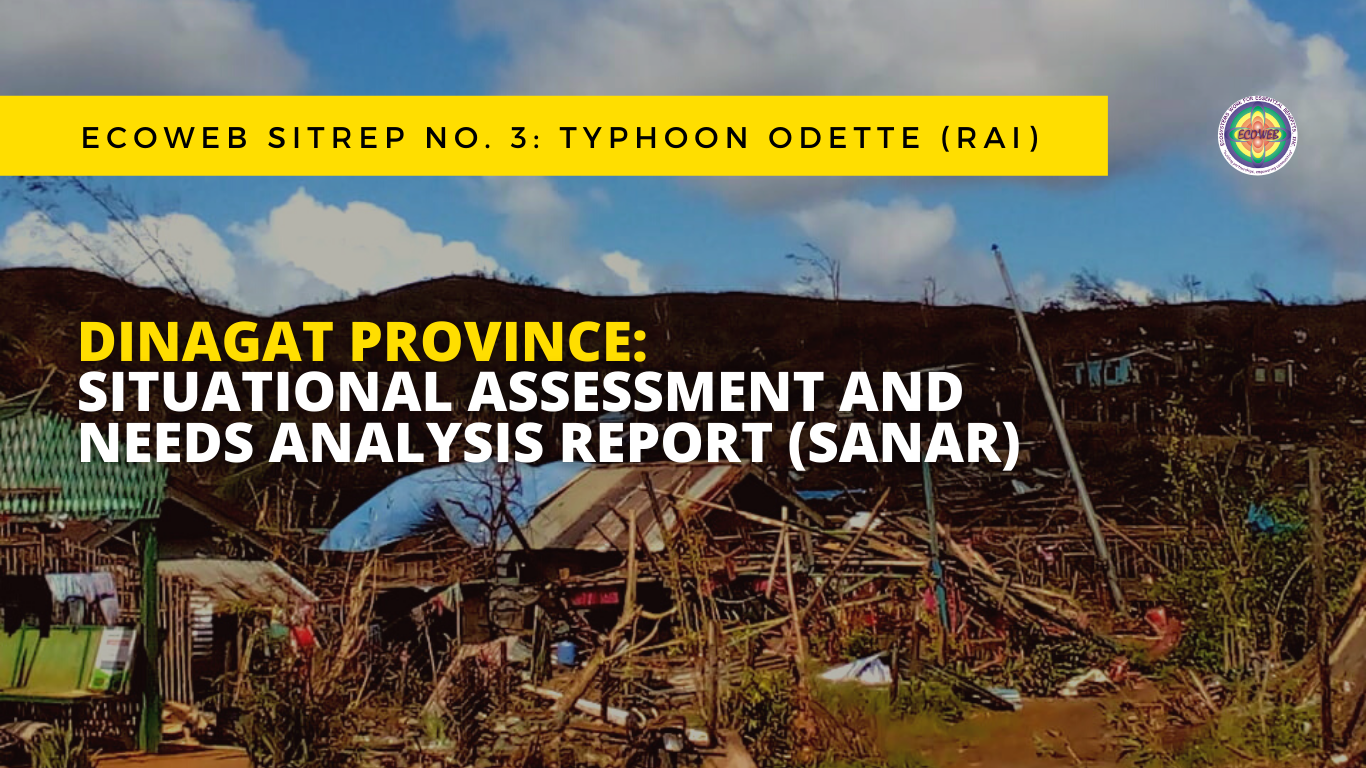
On a humid afternoon in Las Nieves, Agusan del Norte, the air inside the Ambacon Women’s Mushrooms Association’s garden is thick with the earthy aroma of soil. Laughter ripples through the group as Margie Corre Sulit, the association’s president, inspects the material they will use for their cropping. What began as an uncertain experiment in mushroom farming is now a thriving venture. For Margie and the 45 women in her group, it is more than just a source of income—it is a testament to empowerment, to the strength of women who, against all odds, have carved out opportunities for themselves and their families.
Miles away, in the highlands of La Paz, the women of the Kasapa Women Handicraft Weavers Association sit together, their skilled hands weaving beads into intricate designs. Their leader, Jenny Obang, watches over them, pride evident in her eyes. Once confined to farming, these Manobo women now sustain themselves through traditional beadwork, reviving cultural heritage while securing their financial independence. “We had lost hope before,” Jenny reflects. “But now, we are eager to keep progressing.”
Their stories—stories of resilience, of breaking barriers, of forging paths previously unimagined—embody the spirit of this year’s International Women’s Day theme: For ALL Women and Girls: Rights. Equality. Empowerment. As the world marks the 30th anniversary of the Beijing Declaration and Platform for Action, there is renewed urgency to create a future where women and girls, regardless of background or circumstance, are granted equal rights and opportunities. These stories are not isolated triumphs; they are blueprints for how change can happen when women are given the tools to lead.
Empowerment Beyond Survival
Women in marginalized communities often bear the brunt of disasters and economic instability. In places like Las Nieves and La Paz, traditional gender roles once limited their ability to contribute beyond their households. But initiatives led by ECOWEB, through its Survivor and Community-Led Response (SCLR) approach and Indigenous Peoples Resilience Project, are shifting this reality.
The Ambacon Women’s Mushrooms Association received a microgrant, allowing them to start a mushroom farming enterprise. Unlike typical relief programs that offer temporary aid, this initiative provided them with sustainable means of earning. In just a few months, the women earned over Php 33,000. Beyond financial gain, they found a renewed sense of purpose. “Before the grants, we were just mere housewives … Now, we are entrepreneurs, contributing to our household income and to our community. This has brought us closer together.” – Margie Corre Sulit, Ambacon Women’s Association.
For the Kasapa Women Handicraft Weavers Association, ECOWEB’s support—through funding from Help Germany, BMZ-German Cooperation, and the German Relief Coalition (ADH)—transformed beadwork into a livelihood. The vibrant reds, yellows, and blacks of their designs do not just reflect Manobo traditions; they symbolize a community reclaiming its agency. “With our earnings, we help our families, we educate our children, and we keep our culture alive,” Jenny says.
ECOWEB’s microgrant program has also been instrumental in supporting the Lingayao PWD Association in Las Nieves. With 50 members, all of whom have disabilities—mostly orthopedic-related and mental disabilities—the group faced significant struggles, especially during floods that hit Purok 1A, where many of their homes were severely affected. Among them, Juliet C. Floreta, the association’s leader, has played a key role in advocating for the group’s needs and ensuring that the women within the organization are at the forefront of their initiatives.
With ECOWEB’s support, Juliet and the women in the association took the lead in deciding how to use their microgrant. They chose to establish a fabric conditioner and dishwashing soap business, recognizing an opportunity to generate income and uplift their members. More than just a livelihood, this business has given them a renewed sense of purpose and dignity. Women, who were once dependent on others for support, are now key contributors to their community’s economy. “We felt empowered and seen, like we mattered in our community … Finally, we can stand on our own.” – Juliet C. Floreta, Lingayao PWD Association.
Innovation and Leadership: The Role of Indigenous Women
Indigenous women have long been at the forefront of environmental stewardship and community resilience. Kagawad Marilyn Trasmil, CADT 090 women’s representative and former IP LORAMSECA leader, shares how their organization started and how they used their resourcefulness to create products from native fruits and plant materials. Through their ingenuity and determination, the women of IP LORAMSECA have pioneered sustainable enterprises that honor their cultural traditions while addressing pressing economic needs.
With the support of ECOWEB and various agencies, IP LORAMSECA has developed a range of innovative products, including slippers made from water hyacinths—an invasive species transformed into a livelihood opportunity. Their ability to repurpose natural resources showcases the resilience and adaptability of indigenous women. Additionally, the organization has been entrusted with managing the boat project provided by the IP Resilience Project, further cementing their leadership in advancing sustainable initiatives in their community.
Breaking Barriers: The Challenges Women Face
Despite their remarkable progress, the women leading these initiatives continue to face systemic barriers—deep-seated gender biases, limited access to financial resources, and societal expectations that often prioritize men in leadership roles. Women in rural areas, particularly those from indigenous and marginalized communities, struggle with land ownership rights, market access, and the added burden of domestic responsibilities. Yet, they refuse to back down. They persevere through climate disasters, economic struggles, and social expectations—always finding new ways to move forward. Their strength is in their unity, their willingness to adapt, and their relentless pursuit of a better future.
Investing in Women is Investing in the Future
ECOWEB’s projects align with the broader global movement for gender equality by centering women in community-driven solutions. From disaster risk reduction to sustainable livelihoods, their approach ensures that women are not passive recipients of aid but active architects of their futures.
Divine Grace Mahinay, a 26-year-old mother of one and Treasurer of the Kioya United Abaca Fiber Association (KUAFA), is a testament to this. As one of the Production Guild Leaders in Brgy. Kioya, Sibagat, she has pioneered local innovations in abaca product waste. “As a woman leader in Climate-Smart Agriculture, I want to inspire other women and young ladies to pursue their dreams with determination while remaining humble in their success. My greatest achievement will be leaving a lasting impact on their hearts—one that, when they look back, reminds them that someone named Divine Grace helped shape their journey.”
ECOWEB has supported numerous women-led initiatives as demonstrated in the following three (3) current projects working in Indigenous Communities:
- GreenFiber project in Sibagat, Agusan del Sur: partnering with 139 self-help groups (SHGs) with 43% being women-led.
- IP Resilence project La Paz and Loreto, Agusan del Sur: partnering with 33 Active IP Organizations/Livelihood Associations, 13 (39%) of which are women-led, with 70% of officers and 60% of members being women.
- Formation of Production Guilds and Social Enterprises for Economic Development (FPGSEEDIC) Project: partnering with 16 active abaca Production Guilds in Indigenous communities in North-Western Mindanao in which 2 are all-women groups, 4 are women-led, and at least 30% of officers and 40% of members being women.
A Call to Action
International Women’s Day 2025 calls on governments, organizations, and individuals to take tangible steps toward gender equality. It is a reminder that empowerment must be inclusive—that true progress happens only when no woman or girl is left behind.
For most women, empowerment is not an abstract concept—it is a daily reality. It is in the hands that meticulously weave beads into necklaces that sustain families. It is in the sweat that drips as mushrooms are harvested to build a future beyond survival. It is in the voices that, once silenced by societal norms, now speak with confidence and command.
This International Women’s Day, let us recognize and amplify these voices. Let us invest in women’s leadership. Let us ensure that all women and girls have the rights, opportunities, and empowerment they deserve.
As Margie so powerfully puts it: “Because of this opportunity, we’ve shown what we can do as women.”
And that is a future worth fighting for that ECOWEB has been strongly committed to.
ECOWEB: Empowering Communities, Building a Better Future
Guided by its mission: Building Parterships, Mobilizing Resources, Empowering Communities, and its Social Inclusion and Gender policy, ECOWEB, has been and will continue to empower women. “Women are not just part of change; we drive it. At ECOWEB, being a women-led organization itself, we invest in women’s leadership because when women rise, communities thrive. This International Women’s Day, we reaffirm our commitment to ensuring that all women, especially those in marginalized communities, have the resources, voice, and agency to lead the change they envision.”, said ECOWEB Executive Director Regina “Nanette” Salvador-Antequisa.



